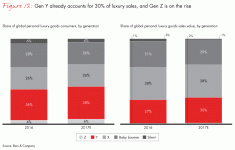1. If you receive a discretionary bonus as part of your contract, were you given an indication as to what percentage/amount it would be when signing up for the job?
2. Did/Does it meet your expectations?
3. Have you ever NOT received a discretionary bonus even though you, personally, had a productive/goal-meeting/box-tickingly good year?
Had a few awkward conversations with team members who don't appear to understand the word "discretionary" and "indication".
Curious as to how these work and what experiences people have outside the two organisations I've worked for where the following answers apply;
Previous role:
1. Yes full disclosure with a maximum cap of what I could get.
2. I never made the maximum as that was down to a profit margin percentage of the entire business - it was a little annoying as I had more than exceeded my targets, but also it has to be a business-wide thing, but it doesn't motivate you to work as hard.
3. Yes - and it is quite demoralising - but then you know that no one else (at least as far as I know) did either.
In another previous role:
1. Yes but it was public sector and as such very small and almost not worth it.
2. No - and what's more consultants that weren't directly employed got significant bonuses and pay despite doing teh same role, they just happened to be a 3rd party employee. Part of me thinks "fair enough they made the choice to work for that employer" but then part of me thinks, "they do the same job as me and I work harder and get less... why bother?".
3. Yes but it didn't bother me too much as the overall package was greater than the bonuses would have added (health care, free travel, final salary pension and a huge amount of time off and flexible working).
Current role:
1. I was told up front and in my contract what I could get an what the cap is. 20% or £20k whichever is the smallest.
2. Yes, it's very generous for the work I do.
3. not yet.
Oops I didn't realise it was an old thread! But
@HangTime posted and thought it was an interesting topic

To elaborate on #2, the issue I had was the difference in personal performance bonus between a "Successful" rating and "Exceeds" was only 2.5%. By contrast, the difference between "Marginal" and "Successful" was huge because you would forgo any bonus including company performance bonus (up to 22.5% in some cases) if you were not successful. Additionally, you had situations where someone would have a great year but get less bonus than prior years when they performed worse because of the bigger weighting on company performance (to be clear I completely understand that company performance has to play into it, you can't have the company making big losses and then shelling out phat bonuses). The feedback I got as a manager was that it wasn't worth busting a gut for the sake of 2.5%, not much more than a grand after tax etc is taken off. For a couple of people the bonus / pay review was actually a demotivator because they felt they should be getting more. My recommendation to HR was that they widen the gap between Successful and Exceeds bonuses so that strong performers could see more of a difference.
Completely agree, it's a tough one, the company has to be doing well overall to offer the cash to pay the bonuses, but if your department (as a head / MD of a business unit) you outperform, you and your team were not always guaranteed to achieve the rewards you deserve. Case in point, we achieved as a business unit 12% profit over last year's budget and delivered a significant portion of cash to the bottom line - we basically carried a lot of the business... And we got ****** on bonus ;/ pay rises / budget for the following year. We had a few people leave as a result - I didn't over promise, we were open and honest across the year and I supported their decision to leave, it's hard not to.
What's more cutting was that some of my other directors were clocking up £10k of expenses and some of their projects were failing and were using the business wide profits to plug the gaps in the projects. SO frustrating - and yet some of them kept getting away with it. That's why I left after 4.5 years and took a £30k pay cut!




